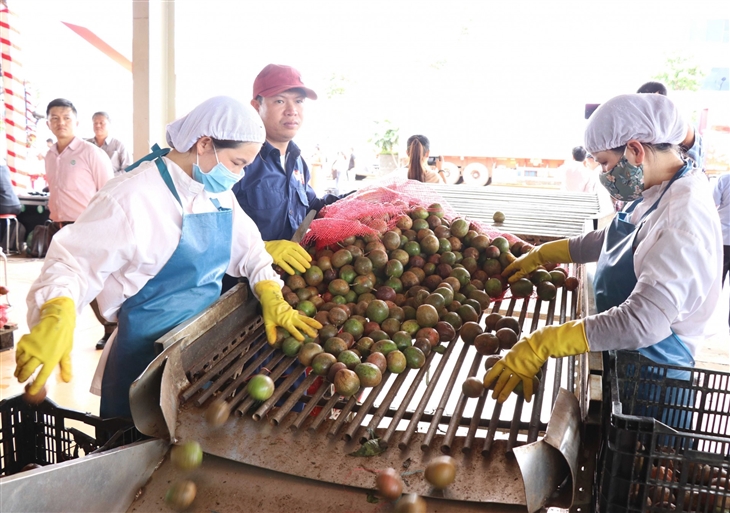Regulations benefit produce exporters to EU
Sunday, November 5,2023
AsemconnectVietnam - Improving product quality to meet the EU’s standards, expanding production scale and making good use of opportunities offered by the EU’s Carbon Border Adjustment Mechanism (CBAM) are important for Vietnam to increase produce exports to the EU.
Ywert Visser, a member of the EuroCham Food, Agri and Aqua Business Sector Committee (FAABS), spoke at a September-27 seminar on “Technology Application and Innovation for Export Competitiveness Enhancement in the Agricultural Sector of Vietnam” that Vietnam’s farm produce exports to the EU have grown significantly since the EU-Vietnam Free Trade Agreement (EVFTA) took effect on August 1, 2020.
The country mainly exports coffee and cashews, and what will happen when EU consumers change their consumption habits. The small-scale agriculture, modest productivity and quality of some agricultural products, and the farm produce processing industry’s slow development are deterring Vietnamese produce exporters from expanding their market shares in the EU.
Ywert Visser said learning about consumer needs and habits is very important, while the Global G.A.P. (Good Agricultural Practices) certification is required to bring products into EU supermarkets, and the GLOBALG.A.P. Risk Assessment on Social Practice (GRASP) and Sedex Members Ethical Trade Audit (SMETA) certifications are also important.
According to Dr. Nguyen Van Hoi, Director of the Institute for Strategy and Policy Research under the Ministry of Industry and Trade (MoIT), apart from the EVFTA’s advantages, Vietnamese produce exports to the EU can benefit from the EU’s new regulations such as the Carbon Border Adjustment Mechanism (CBAM). CBAM has been approved and officially took effect on May 17 this year. CBAM began a three-year transition period from October 1, 2023. After this time, the CBAM mechanism will officially take effect from January 1, 2026 and be fully operational in 2034.
In its transitional phase, CBAM will only apply to imports from “super-emitter” sectors such as cement, iron and steel, aluminum, fertilizers, electricity and hydrogen. EU importers of those goods will have to report on the volume of their imports and the greenhouse gas (GHG) emissions embedded during their production, but without paying any financial adjustment at this stage. While importers are asked to collect data for the fourth quarter of 2023, their first report will only have to be submitted by 31 January 2024.
CBAM requires all goods exported to the market to be taxed on carbon based on the intensity of greenhouse gas emissions in the production process in the host country.
The EU allows offsets between sectors through buying, selling, and swapping carbon credits. With this regulation, agriculture will have a huge advantage because it is considered a green export industry. In addition to profiting from exports, sector businesses can also earn a profit from buying, selling and swapping carbon credits, Hoi said. Vietnam has begun to have regulations on buying, selling and exchanging carbon credits, which will create favorable conditions for produce exporters especially those to the EU.
Vietnamese businesses need to focus on production methods and production process control, and make good use of EVFTA to overcome technical barriers, including taxes and increasingly strict technical standards, Hoi said.
Source: Ven.vn
DAILY: Vietnamese pepper prices remained unchanged on November 3
DAILY: Vietnamese coffee prices fell by 1000 VND on November 3
New record set in fruit, vegetable exports
Aquatic exports expected to reach 10 billion USD
Vietnam’s export rice price reaches new peak
Export turnover estimated to reach 291.28 billion USD in ten months
Integration news on November 2,2023
Business news on November 2,2023
DAILY: Vietnamese pepper prices remained unchanged on November 2
Vietnam aims to promote agricultural exports to Africa
Agro-forestry-fisheries sector enjoys trade surplus of 9.3 billion USD
DAILY: Vietnamese coffee prices fell by 800 VND on November 2
Attraction from domestic logistics market
Food, beverage businesses flexibly adjust year-end supply strategies to overcome challenges


